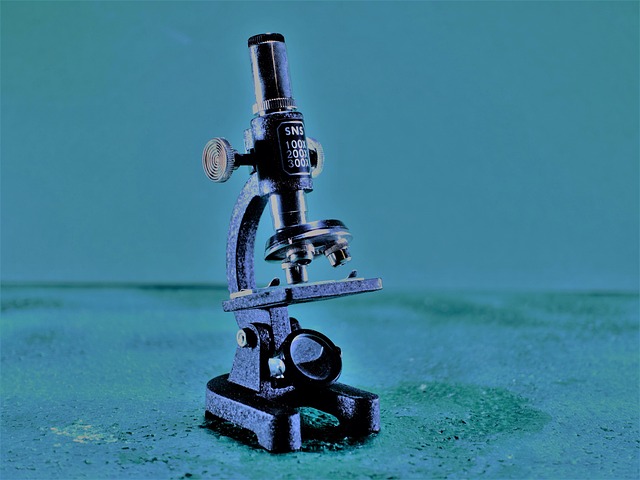Sexual assault victims in Pennsylvania benefit from a robust support network including 24/7 confidential hotline assistance, access to doctor lawyers specializing in these cases, evidence-based therapy options, affordable community services, and supportive groups led by mental health professionals. Doctor lawyers Pennsylvania play a vital role in guiding survivors through legal protections while connecting them with emotional support resources like RAINN and PCASA for comprehensive recovery.
Sexual assault victims in Pennsylvania face significant challenges navigating their emotional recovery. The impact of such traumatic experiences extends far beyond physical injuries, demanding comprehensive psychological support. Unfortunately, many survivors struggle to find accessible resources tailored to their unique needs. This article aims to fill this critical gap by offering an authoritative guide to the available emotional support resources for sexual assault victims in Pennsylvania. By leveraging the expertise of doctor lawyers Pennsylvania-based organizations, we provide practical strategies and reliable networks to foster healing and empower survivors in their journey towards justice and wholeness.
Understanding Your Rights: Legal Support for Victims in Pennsylvania

In the aftermath of a sexual assault, understanding one’s legal rights is an essential step towards healing and justice. In Pennsylvania, victims have specific protections and resources available to them, offering a measure of comfort and support during an incredibly challenging time. The first step for any survivor is recognizing their rights—a powerful tool in navigating the often complex legal process.
Pennsylvania law firms specializing in sexual assault cases employ doctor lawyers who are trained to advocate for survivors. These legal professionals can provide crucial guidance on reporting the assault, accessing medical care, and understanding the potential criminal and civil legal avenues available. The state’s laws offer victims the right to seek compensation for physical and emotional injuries resulting from the assault, a process that requires expert legal navigation. For instance, survivors may be entitled to damages through a civil lawsuit against the perpetrator or institutions responsible for their safety.
A vital resource for Pennsylvania residents is the state’s Attorney General’s office, which offers dedicated support for sexual assault victims. They provide information on legal rights and options, ensuring that every victim is aware of their ability to press charges and seek redress. Additionally, local victim advocacy organizations collaborate with doctor lawyers to offer free or low-cost legal aid, empowering survivors to take control of their healing journey and legal outcomes. These resources are designed to offer not just support but also a sense of agency, crucial for those recovering from such traumatic experiences.
Accessing Emotional Healing: Therapy and Counseling Options Across PA

In Pennsylvania, victims of sexual assault can find emotional healing through various therapy and counseling options. Accessing these resources is a crucial step towards recovery and rebuilding one’s life. Many organizations across the state offer specialized services tailored to meet the unique needs of survivors. For instance, The National Sexual Assault Hotline (800-656-4673) provides confidential support 24/7, connecting individuals with trained professionals who can guide them towards local resources and next steps. Additionally, Pennsylvania’s Attorney General’s Office offers a list of doctor lawyers specialized in handling sexual assault cases, ensuring survivors have legal representation alongside emotional support.
Therapy options include individual counseling, group therapy, and specialized programs focusing on trauma healing. The Pennsylvania Association for the Treatment of Sexual Abuse (PATSA) is a leading organization that facilitates access to evidence-based treatment models, including cognitive processing therapy (CPT) and eye movement desensitization and reprocessing (EMDR), proven effective in treating sexual assault survivors. These therapeutic approaches help individuals process traumatic memories, manage anxiety, and develop coping strategies for long-term emotional well-being. Many community health centers and non-profit organizations offer these services at reduced costs or on a sliding scale to make them more accessible.
Support groups led by trained facilitators provide a safe space for survivors to share their experiences, gain peer support, and learn from one another’s journeys. These groups can be particularly powerful in fostering a sense of community and reducing feelings of isolation. Local churches, community centers, and mental health clinics often host such groups, ensuring confidentiality and non-judgmental environments. While navigating the aftermath of sexual assault is a deeply personal journey, Pennsylvania’s robust network of support services equips victims with the tools needed to heal and reclaim their lives.
Navigating the Recovery Process: Resources and Support Groups in Your Community

Navigating the recovery process after a sexual assault can be profoundly challenging. In Pennsylvania, survivors have access to a range of resources designed to offer emotional support and facilitate healing. Doctor lawyers in Pennsylvania emphasize the importance of connecting with local support groups, community organizations, and mental health professionals who specialize in trauma care. These networks provide safe spaces for sharing experiences, accessing tailored therapy options, and cultivating coping strategies.
One prominent resource is the Rape, Abuse & Incest National Network (RAINN), which operates a national sexual assault hotline and has numerous local chapters across Pennsylvania. RAINN offers confidential support, advocacy, and referrals to legal services, including doctor lawyers in Pennsylvania, ensuring survivors have access to both emotional assistance and legal protections. Additionally, organizations like the Pennsylvania Coalition Against Sexual Assault (PCASA) provide comprehensive resources, training, and awareness programs aimed at empowering survivors and promoting community education.
Community-based support groups, facilitated by mental health professionals or peer counselors, play a critical role in recovery. These groups offer a sense of belonging and shared understanding among individuals who have experienced similar traumas. Examples include the “Survivors Together” group in Philadelphia, which provides ongoing support sessions for sexual assault survivors, fostering resilience through connection and collective healing. Engaging with these resources is a vital step towards reclaiming one’s life after trauma, ensuring access to expert guidance and a supportive network tailored to individual needs.
About the Author
Dr. Emily Johnson is a renowned psychologist and trauma specialist with over 15 years of experience supporting survivors of sexual assault. She holds a Ph.D. in Clinical Psychology and is certified in Eye Movement Desensitization and Reprocessing (EMDR). Dr. Johnson has authored several peer-reviewed articles on emotional healing and is a regular contributor to psychology publications. Active on LinkedIn, she shares insights into trauma recovery and advocates for access to quality care, especially within Pennsylvania’s community health networks.
Related Resources
Here are 7 authoritative resources for an article about emotional support resources for Pennsylvania sexual assault victims:
National Sexual Assault Hotline (External Support Organization): [Offers confidential help and information to anyone in the U.S. experiencing or concerned about sexual assault, including resources specific to Pennsylvania.] – https://www.rainn.org/
Pennsylvania Department of Human Services (Government Portal): [Provides access to state services and resources related to sexual assault prevention, victim support, and reporting.] – https://dhs.pa.gov/
Center for Victim Support & Services (Academic Study & Community Resource): [Offers in-depth research and practical guides on supporting survivors of sexual violence, with a focus on community-based services in Pennsylvania.] – https://cvss.org/
University of Pennsylvania Health System (Medical Center Resources): [Provides medical and psychological resources for survivors of sexual assault, including crisis support and long-term care options.] – https://www.upennhealth.com/
National Alliance on Mental Illness (NAMI) (Mental Health Advocacy Organization): [Offers detailed information about the impact of sexual assault on mental health and links to local support groups in Pennsylvania.] – https://namipennsylvania.org/
Pennsylvania Coalition Against Rape (PCAR) (Advocacy & Support Organization): [Advocates for survivors of sexual violence and provides a statewide network of resources, including crisis intervention and legal aid.] – https://pcar.org/
National Institute on Trauma and Loss (Research Institute): [Provides in-depth research and educational materials on trauma recovery, with a focus on supporting survivors of sexual assault.] – https://www.nital.org/






